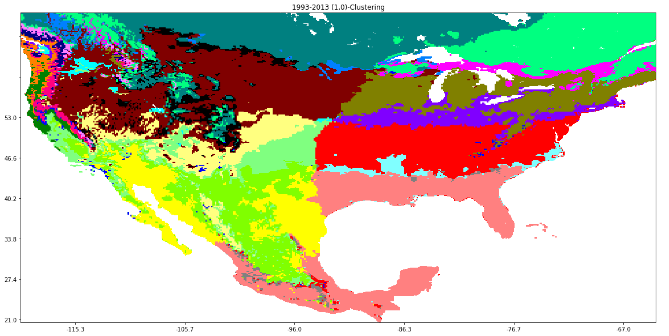
Multiresolution Cluster Analysis—Addressing Trust in Climate Classification
Abstract
The Earth’s climate is a complex system of micro and macroscopic interdependencies. Classifying the surface of The Earth into climate biomes is a way to parse this information down to provide meaningful diagnostics to relate the physical and biological systems. Historically, the standard used to classify climate biomes has been a rule based system known as the Köppen-Geiger model. This interpretable model is based off heuristics which may not adhere to the underlying climatological phenomenon. While several data driven models have been developed in an attempt to remedy this issue, each suffers from a lack of uncertainty quantification. In this work, we develop a data driven model that leverages the discrete wavelet transform. The discrete wavelet transform allows one to classify the climate on a multitude of spatial-temporal scales in a way that preserves the climatology and reveals insights into key factors contributing to the classification. These multi-resolution clusterings are combined to produce a fuzzy clustering along with a confidence metric that assess the uncertainty of the clustering at different points in space. The algorithm, which we call multi-resolution cluster (MR-Cluster), is designed to be scalable and robust to the perturbations in the climate signal at large and small scales. As a proof of concept, we apply MR-Cluster to the Localized Constructed Analogs Statistical Downscaling climate data set of North America. Results illustrate the capability of MR-Culster to use intrinsic information within data to develop a biome classification that includes an estimated level of confidence in the regional classification.